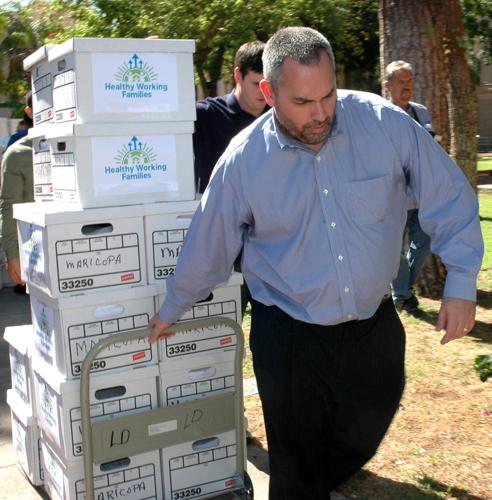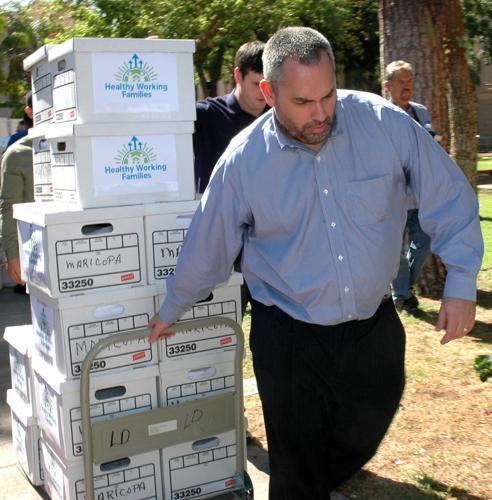PHOENIX — Two statewide business groups are trying to keep voters from deciding whether $12 an hour is too much for workers and $216 an hour is too little for hospital executives.
Lawsuits filed in Maricopa County Superior Court contend both initiatives are legally flawed. They ask judges to rule that Secretary of State Michele Reagan cannot put either on the ballot.
The challenge to the minimum wage is being brought by the Arizona Restaurant Association, whose members have workers paid less than the proposal would require.
The Arizona Chamber of Commerce and Industry is taking the lead on behalf of its member hospitals to sideline the cap on hospital executive pay.
The potentially more sweeping of the measures would require all employers to pay their workers at least $12 an hour by 2020, up from the state’s current minimum wage of $8.05. The measure also would require employers to provide at least three days of paid personal leave.
Supporters led by Living United for Change in Arizona submitted about 270,000 signatures, about 120,000 more than required, to put the issue on the ballot.
The second measure would cap the salary of hospital executives at how much the president of the United States is paid, which is currently $450,000, including expenses. The Service Employees International Union turned in more than 281,000 signatures to get the initiative on the ballot.
In the minimum-wage case, attorney Roopali Desai raised questions about whether some people who circulated petitions were not legally qualified. Desai also said there are defects in the affidavits that circulators are required to sign.
If Judge Joshua Rogers agrees, that would mean none of the signatures these individuals gathered could be counted, even if they came from registered voters qualified to sign petitions.
But Desai could have an uphill fight: Her lawsuit acknowledges that Reagan and her staff have not found the same defects she claims and have refused to remove the petition sheets from the count.
Desai has a different legal theory she is presenting to Judge Douglas Gerlach in the case challenging the hospital pay cap.
She said circulators were gathering signatures before there was a properly formed campaign committee. That, she said, makes all of the more than 281,000 signatures invalid.
Chamber spokesman Garrick Taylor explained the moves to keep the measures off the ballot: “We think they’re both terrible ideas and job-killers,” he said.
Stopping either or both measures in court would be a lot cheaper than the millions of dollars it would take to persuade voters to reject them.
Steve Chucri, president of the restaurant group, said he is not trying to undermine the constitutional right of voters to propose their own laws, but that the rules must be followed.
“We think there’s a likelihood of fraud that took place in the gathering of those signatures,” he said — a contention that petition organizers will fight in court and Rogers will ultimately decide.
Taylor said his organization’s focus has been on the hospital-executive pay measure. “What you’d be doing is you’d putting up a big sign on Arizona’s health-care sector that says we are not able to attract the best and brightest to practice here,” he said.
The measure would affect only administrators and managers. Service Employees International Union spokesman Steve Trossman said the state has an interest in capping administrative costs, with most hospitals set up as tax-exempt, nonprofit operations that get a majority of their funds through government programs like Medicare and Medicaid.
Gerlach has set a hearing for Thursday on the challenge to the hospital-pay initiative; Rogers is hearing arguments a week later on the minimum-wage question.





